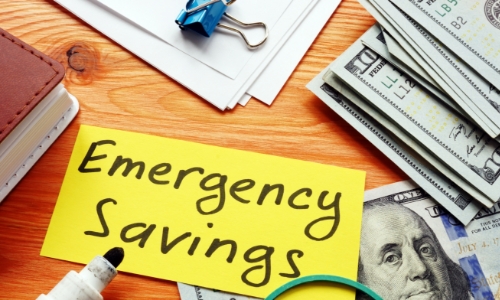
Developing a Budget
Many budgeting strategies exist to help you organize your expenses. Learn about different budgeting methods and determine the best option for you. Map out your essential expenses, like mortgage/rent, utilities, or groceries. By figuring out your essential costs, you can narrow down the most effective way to use your money. To get started, use our free, simple budgeting planner or Money Manager to create your personalized budget.
Easy Steps to Create a Budget
- Collect any financial information – This includes any bills, receipts, or bank statements. Collecting these records can help you develop a monthly average, making it easier to predict and plan for your future costs.
- Add up your income.
- Determine your expenses - Evaluate what and where you’re spending money. A good way to start is to divide your expenses into two categories, fixed and variable. A fixed expense is a cost that will likely remain the same each month, such as a mortgage or utility payment. A variable expense is something that may fluctuate in cost, such as gasoline, groceries, or entertainment.
- Subtract your expenses from your income. The goal is to show more income than expenses. If your result shows more expenses, it is a good time to evaluate how you can improve!
- Review your results – Once you map out how your money flows, you can adjust accordingly.
A good way to start making adjustments is to determine how you can cut down on costs in the “variable” category. Determine which of these expenses is necessary, and which can wait until a later time, or find a less expensive alternative. For example, trying to make dinner at home instead of dining out, trying a cheaper streaming service instead of cable, or searching for coupons to get a discount.
Increase Your Savings
If your income is more than your expenses, this is a good opportunity to contribute to your savings, or help pay down any debts. Even saving a small amount is important, and will start to add up. Consider automatically rounding up your purchases from your checking to your savings account with every debit card transaction. As you continue to build up your savings, consider putting your money in a savings account with a high interest rate, in order to start earning more interest.
Another way to contribute to your savings is to try and increase your income. You don’t necessarily need to get a raise from work, but sometimes thinking outside the box can put more money in your pocket. To help build your savings more quickly, check out these tips for earning more money during tight times.